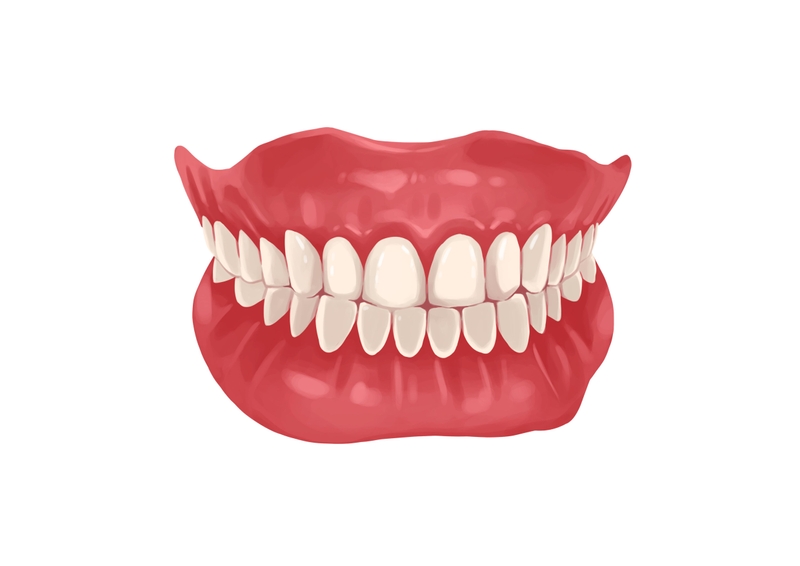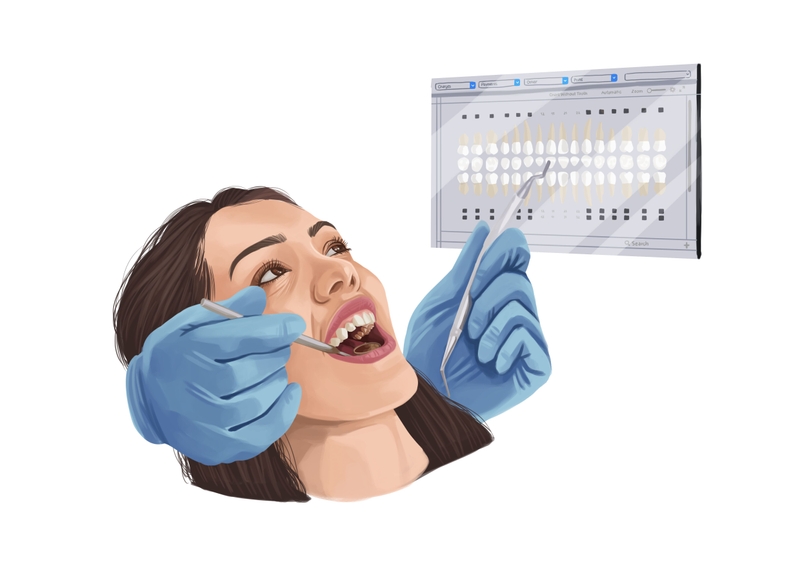- Activated charcoal is made from natural materials such as coconut shells, wood, peat and olive pits. During activation, the material is heated to extreme temperatures, making it absorbent.
- Activated charcoal is slightly abrasive and can remove surface stains and plaque from teeth, resulting in a whiter appearance. However, it may not be effective on intrinsic stains.
- Some activated charcoal products contain bentonite clay, which may contain lead and cause unwanted side effects.
Get a smile you'll love for less. Use Authority Dental to find an inexpensive dental care in your city. It’s simple, fast and free.
Should you use charcoal to whiten your teeth? Here's everything you need to know.
What is activated charcoal?
Activated charcoal is very different from the type you would purchase before a barbecue. It is made up of many natural substances like coconut shells, wood, peat, and olive pits.
Charcoal becomes “activated” when heated to extreme temperatures. Large pores appear during this process, making the material absorbent.
Activated charcoal can be used for many things, including medical application. The substance filters water, is great with food poisoning and stomach issues, and numbs insect bites. It may also be a part of oral care.
Does activated charcoal really whiten teeth?

Picture by Authority Dental under CC 2.0 license
Reviews about activated charcoal teeth whitening products are mainly positive. Users claim to notice visible improvement in teeth shades. So yes, it can be said that charcoal whitens teeth. But it’s important to know what you risk when using this technique.
This substance is mildly abrasive. Under examination with electron microscopy, activated charcoal particles turn out to be very sharp. Thanks to its texture it does in fact remove surface stains and rub off plaque. This can make the teeth look whiter.
Everyone may experience different activated charcoal teeth whitening results. In the case that your staining is intrinsic, meaning it comes from the inside of your tooth, charcoal will not help at all.
You can be sure, however, that activated charcoal will improve bad breath. If your teeth don’t become whiter, at least the smell coming from your mouth will be more pleasant.
Activated charcoal teeth whitening dangers
Is activated charcoal safe for teeth? There is no unanimous or unequivocal answer.
American Dental Association’s Seal of Acceptance likewise does not stand for activated charcoal’s safety or effectiveness in whitening teeth. This is mostly due to the fact that this method has not been widely studied. Most assertions put forward by manufacturers are simply unsubstantiated claims.
JADA specialists also highlight that a third of charcoal products contain bentonite clay. Research shows this ingredient may include lead. Even in small doses, this substance is toxic and shouldn’t be used in or on the body.
What’s more, the technique of activated charcoal teeth whitening may bring unwanted side effects.
Enamel erosion
The ADA states that the abrasive texture of activated charcoal may wear down tooth enamel, especially when used often and for a long time. At first, this may seem like a whitening effect. Only with time or upon a dental exam, does it become obvious that your teeth have been damaged.
Staining
Damaging the outer surface of your teeth can lead to staining, which is counterintuitive as charcoal is supposed to make your teeth brighter. When used too intensively, the dentin beneath the enamel can start poking through. The smile then begins to look yellow.
Your sink and countertops may also become stained, so handle the product with care.
Tooth decay
Charcoal might also cause your teeth to be more vulnerable to tooth decay. Demineralization of enamel is the first stage of dental caries. If you don’t supplement the treatment with fluoride, you can develop cavities.
Sensitivity
Microabrasions caused by charcoal often bring about sensitivity. Enamel acts as a barrier to tubes that lead into the pulp and nerves. When these become irritated, you may feel discomfort when eating or drinking something hot or cold.
If any of these complications start becoming apparent, stop using charcoal and contact a specialist.
How to use activated charcoal to whiten teeth?

Picture by Authority Dental under CC 2.0 license
Due to the above-mentioned dangers, you should pay particular attention to how your mouth reacts while you are using activated charcoal.
Whitening instructions depend on what type of product you use. There are still a few general rules you should follow to minimize the chance of side effects.
Consult with your dentist
Undertaking any dental treatment without a dentist assessment may be dangerous to your oral and general health. You can ask your specialist about charcoal teeth whitening during a routine exam. He or she will let you know whether you are a good candidate.
Prepare your mouth for whitening
You shouldn’t whiten teeth with cavities or in the presence of inflammation. Your dentist may recommend a dental cleaning or a scaling and root planing procedure prior to bleaching your teeth.
It’s a good idea to alternate charcoal products with a paste that contains fluoride to remineralize the teeth. Start using it before treatment, as well as during your oral care routine.
Choose the right product
Activated charcoal may come in the form of toothpaste, powder, or tablets.
Before purchasing your whitening product, check the relative dentin abrasivity (RDA). The FDA does not recommend using anything with an RDA of over 200, while dentists may be even more restrictive. It could quickly wear down your enamel and lead to damage.
Make sure to also look into whether you are allergic to sorbitol. Many activated charcoal products contain this ingredient.
Use activated charcoal with caution
If the product goes on your toothbrush, use gentle, circular motions to clean your dentition. In order to make it even safer, you can use your fingers instead of a brush. Simply leaving it on, though, will not give you any effects, as charcoal only whitens thanks to its abrasivity.
Do not reach for the product for long periods of time. Some may state they are safe to use everyday, but there is no evidence to back this up. Instructions on the packaging are vital, but you have to first and foremost adhere to recommendations by your dentist.
A specialist is always more informed on the situation in your mouth than a manufacturer who writes generalized guidelines. Prolonged exposure to activated charcoal may even lead to an overdose.
And lastly, do not swallow the charcoal. It is a laxative.
Remember, activated charcoal whitening is not an alternative to dental hygiene. Make sure to brush and floss your teeth as you normally would afterwards.
FAQ
How much does activated charcoal cost?
Where to buy activated charcoal?
How often can you brush your teeth with activated charcoal?
How long does it take for charcoal teeth whitening to work?
What are some alternatives to whitening teeth with charcoal?
Other alternative and DIY remedies for bleaching teeth include using baking soda or hydrogen peroxide. If you want professional-grade results, you may want to invest in an LED teeth whitening kit.
In-office results are usually faster and less risky. Your dentist can apply more concentrated products to whiten your teeth in as little as one appointment. You may also receive custom trays to use at home.
Is charcoal teeth whitening safe for pregnant women?
References
- Activated Charcoal
- More on charcoal and charcoal-based dentifrices
- Seal Product Shopping List
- Charcoal and charcoal-based dentifrices: A literature review
- Whitening toothpaste containing activated charcoal, blue covarine, hydrogen peroxide or microbeads: which one is the most effective?
- Abrasivity of dentrifices: An update
- Activated charcoal for acute overdose: a reappraisal
Matthew Stewart, DDS
Initially, activated charcoal will whiten the teeth by removing the surface stains, but is also removing enamel. It is much safer to use traditional teeth bleaching products.